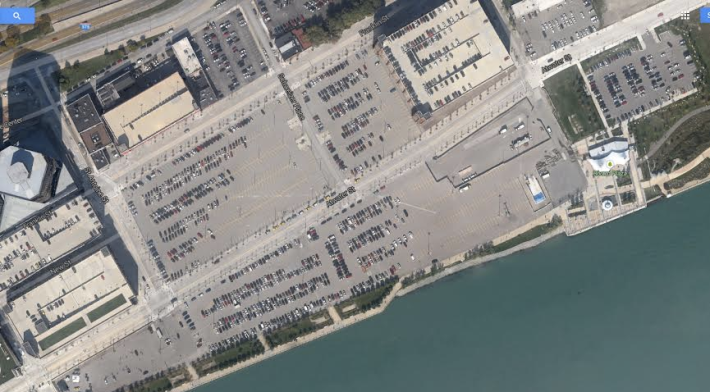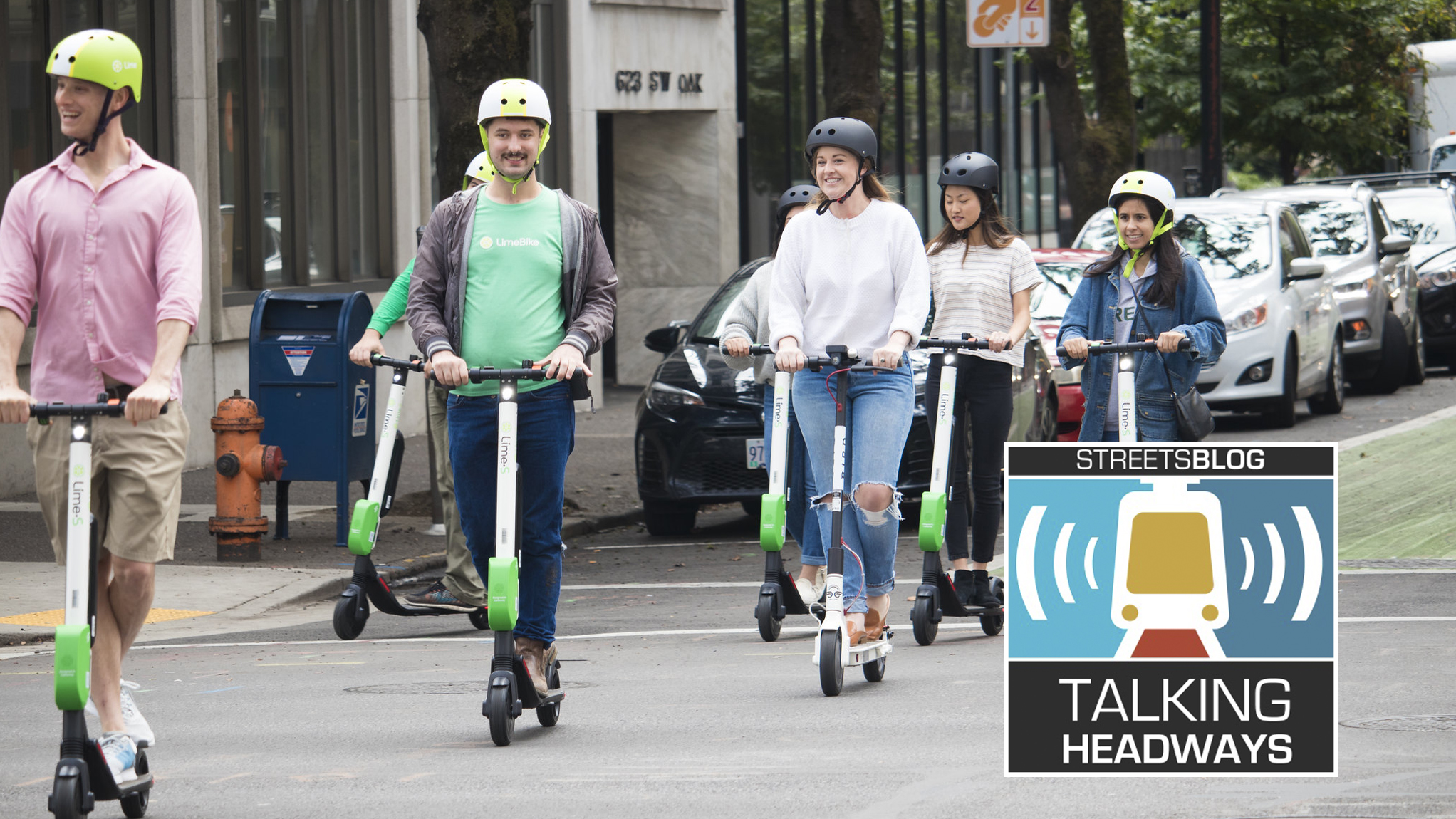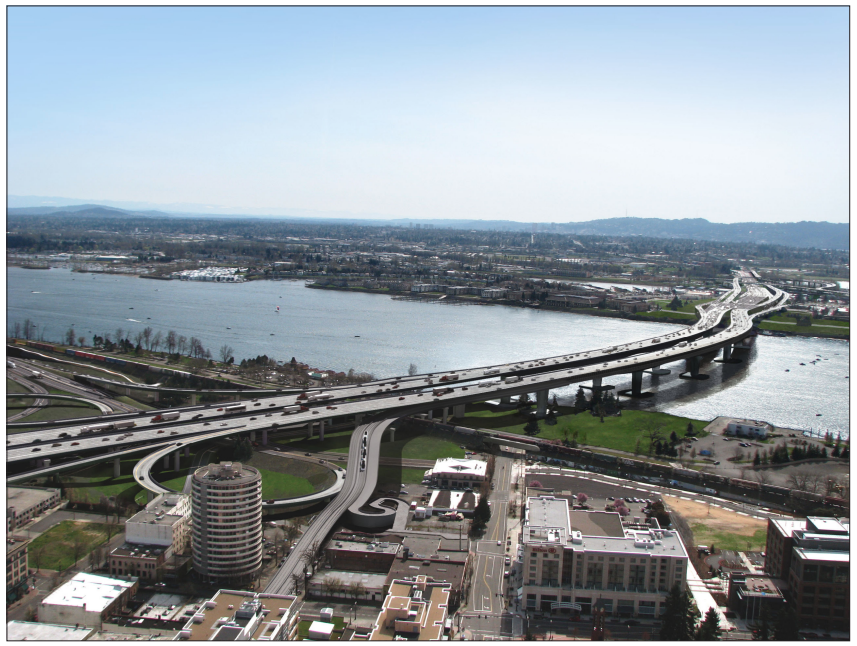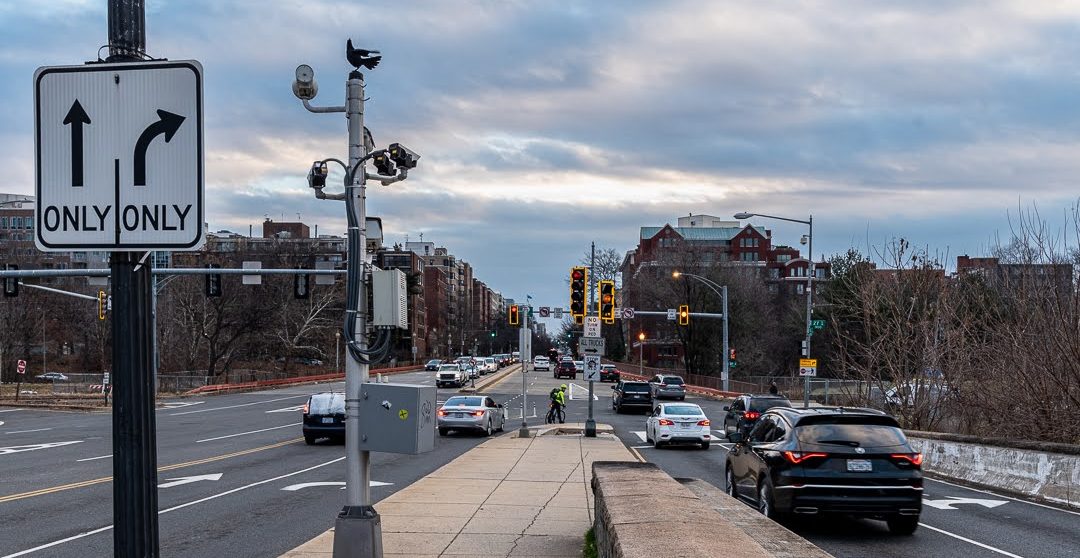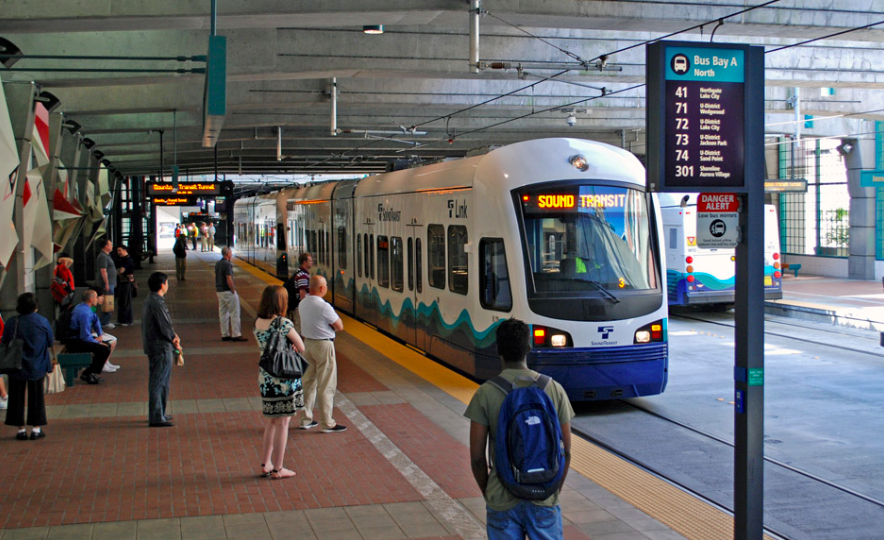Today it's on to round two in Parking Madness, our hunt for the worst parking crater in an American town. Our first Elite Eight matchup features two cities struggling to rebuild in the wake of some serious urban disinvestment, and these parking craters certainly aren't helping. It's Camden vs. Detroit.
Detroit
Detroit's waterfront is really sad when compared to its Canadian neighbor across the river, Windsor, whose waterfront is three miles of uninterrupted parkway. By comparison, Detroit has a couple parks near the Renaissance Center and then lots of parking right up to the waterfront.
Thanks to the talented Shane Hampton of the University of Oklahoma's Institute for Quality Communities, we have historical photos to compare this area to what used to be.
Check it out:
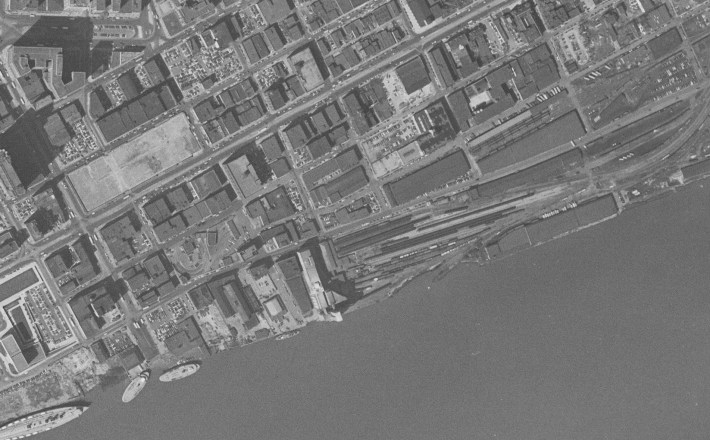
This photo is from 1951. It looks like the area was already becoming a bit pockmarked. Detroit, being the birthplace of the American auto industry, may have been an early parking crater adapter.
Let's look at the competition:
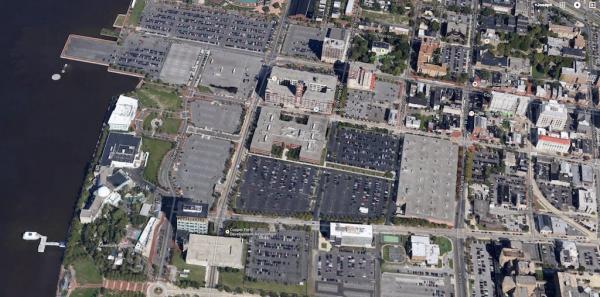
Camden
This photograph, submitted by Joseph Russell, lifted Camden over Mobile, Alabama, in the first round. Russell said of the space:
The neighborhood-killing parking lots on the waterfront in Camden, New Jersey. Years ago, this area housed factories for companies like RCA. Ever since, they've been used as parking lots for the equally neighborhood-deadening L3 Building, which is essentially a fortress separating employees from the rest of the city. Residents of the Cooper-Grant neighborhood are trying to rebuild a viable neighborhood here, and the negative effects of these huge parking lots stand directly in the way of that goal.
Let's see what this area looked like back in 1959:

Hmm interesting. Looks like it was a train yard.
Which one of these waterfront embarrassments deserves to make the Final Four? Let us know below:
